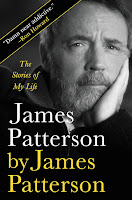As a mother, you’ll do anything to protect your child. Even as an adult, I know my mom is only a phone call away if I need her. It’s a sacred bond, an unshakable connection we instinctively trust. We’re conditioned to see the mother-child relationship as one of love and protection, especially when a child is sick. But what happens when the mother is the reason the child is sick?
In The Mother Next Door, authors Andrea Dunlop and Mike Webber delve into the disturbing reality of Munchausen by proxy (MBP), exposing its devastating impact on families and the extraordinary lengths required to bring justice. Through their gripping investigations, they shed light on a crime that thrives in secrecy, challenging our perceptions of maternal devotion and the systems meant to safeguard children.
Dunlop and Webber bring deeply personal and professional perspectives to The Mother Next Door. Dunlop’s own family was shattered by MBP, leaving lasting wounds that continue to haunt her. At the same time, Webber has dedicated his career to investigating medical child abuse, handling more cases than any other detective in the nation. Together, they unravel the harrowing experiences of three families impacted by MBP, weaving firsthand accounts from loved ones, medical professionals, and government officials. Their reporting exposes the shocking depths of these crimes and the nearly insurmountable challenges of seeking justice for the children caught in the web of deception.
I went into The Mother Next Door with little understanding of MBP and was completely unprepared for just how shocking and devastating its impact can be. It’s almost impossible to fathom what would drive someone to deliberately harm a person they claim to love—let alone their own child.




















